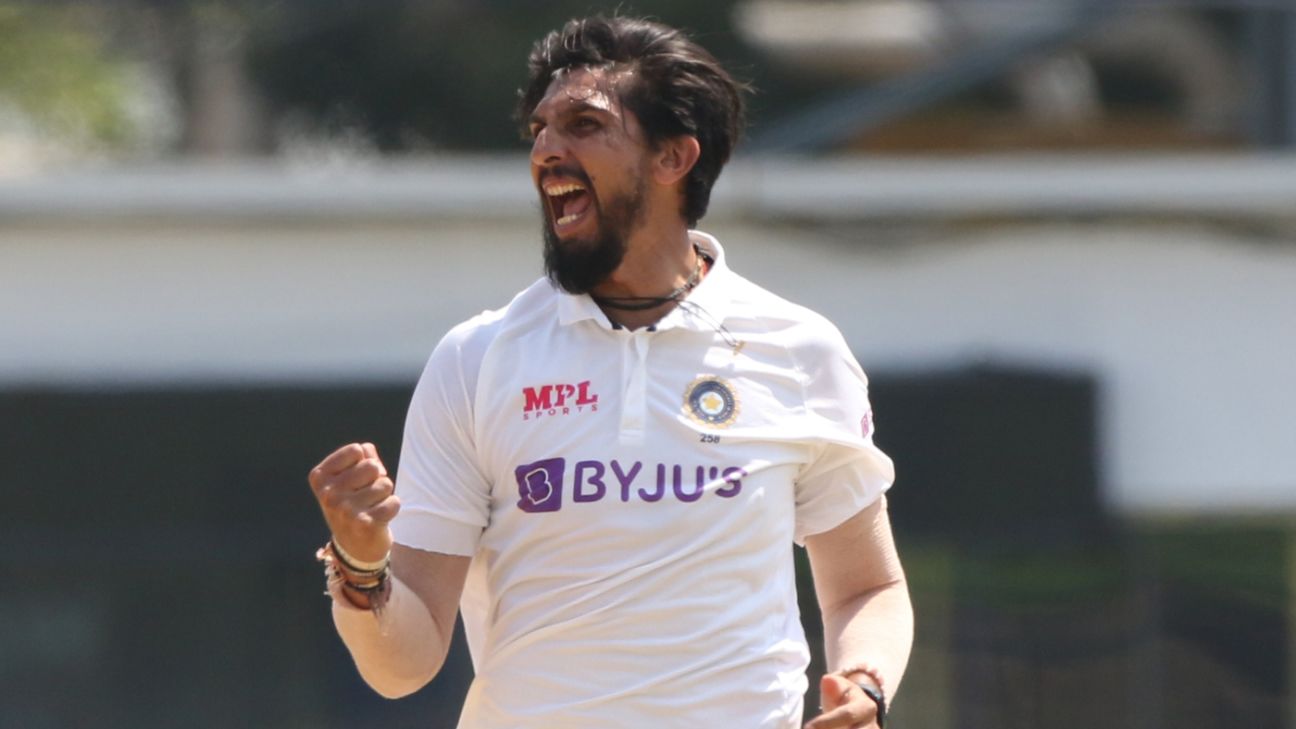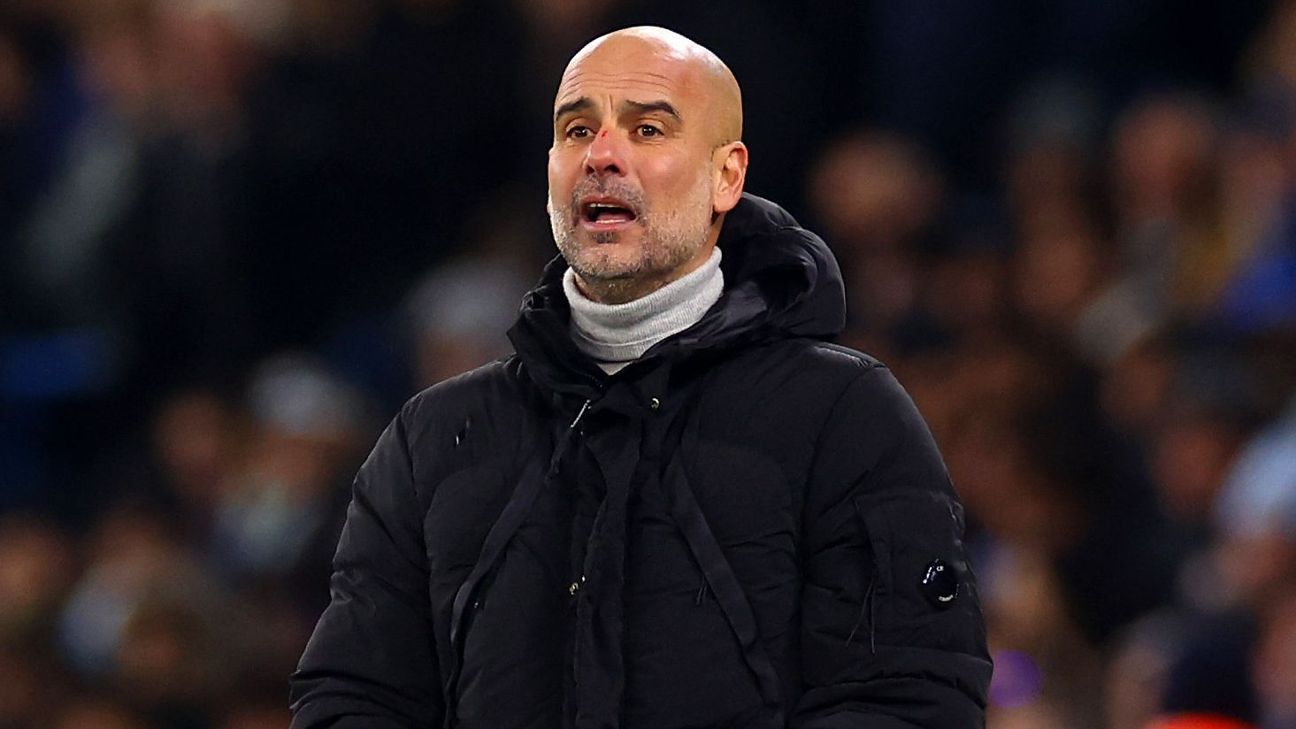
It is easy to forget that Ishant Sharma, who will play his 100th Test this Wednesday, is only 32 years old. He has seen a lot of ups and downs at such a young age. Most importantly, he has kept working on his skill and fitness to turn around a career that at one point looked like one of the luckier ones. From there to leading India's attack to being one of the best Test bowlers in the world over the last four years is a testament to his commitment and stubbornness.
Test cricket is Ishant's world now, and the ongoing World Test Championship (WTC) is his World Cup. When asked if he can see himself going past Kapil Dev's mark of 131 Tests - the most for an India fast bowler - Ishant said he wasn't looking beyond qualifying for the WTC final.
"There's a lot of time to 131," Ishant said. "Right now I am only thinking about how we can win the next Test. And then the next so that we can qualify for the final of World Test Championship. I have only [one] format [to play in], so the WTC is like a World Cup for me. If we reach the final and then go on to win it, it will be the same feeling as winning the ICC World Cup."
Ever since Ishant has stopped playing other formats for India though, he has been able to spend more time on his Test skills. One of the well-known improvements came about under Jason Gillespie at Sussex, where he learnt to bowl fuller without sacrificing on the pace, without floating the ball up there. Ishant acknowledged that missing other formats might have helped him, but he would have got to 100 Tests anyway.
"Obviously I want to play white-ball cricket," Ishant said. "A sportsman's only job is to play. What will he do if he doesn't play? But I don't think too much about the formats I miss. I only think about the format I am playing. How can I perform better in the format I am playing? How can I make my team win? If you think positively about a situation, it is easier to stay grateful and perform for the team.
"Maybe not playing three formats has helped me play 100 but I don't think I wouldn't have got there if I was playing other formats. I am only 32 after all, and not 42. Maybe I wouldn't have got there this early, but I am sure the amount of time I have played and the way I stay fit and look after my conditioning, I would have played 100."
"The sooner you forget things and move on in life, the better it is for you. This is the biggest lesson I have learned. If you are stuck on the past, you can't move ahead."ISHANT SHARMA
Over the years, Ishant has also understood his body better and has learnt to train smarter. "Thirty-eight is difficult to say as of now," Ishant said when asked if he felt in his best shape and if he could continue playing as long as England's James Anderson, another one-format bowler, has. "I just go one Test at a time. I don't think too far because you never know. You just take it one game at a time. But, yes, I understand my body, what kind of training I need to do. Before also I used to train very hard but didn't use to think about the recovery. But as you grow older and you have to bowl long spells, then you need to look after yourself. So, I am looking after myself."
You can look after yourself the best possible way but you still can't control everything. In the winter before this one, Ishant was looking at playing his 100th Test in Australia, but first an injury cut short his tour of New Zealand and then another - combined with Covid-19 restrictions - resulted in his missing the Australia tour altogether.
"I'd have loved to go to Australia and complete my 100 Tests there but there are things that are not in your control," Ishant said. "Because of Covid restrictions, I couldn't have made it in time. But the sooner you forget things and move on in life, the better it is for you. This is the biggest lesson I have learned. If you are stuck on the past, you can't move ahead. The next match can also get affected by your past performance. I only keep trying to forget what has happened and focus on what lies ahead."
What lies ahead is also a slow handing of the baton over to Jasprit Bumrah, who Ishant feels, will be the next leader of the attack. "I learnt a lot from Zak [Zaheer Khan]," Ishant said. "Especially his work ethic. He always used to tell me how important fitness is for a fast bowler. That's what I kept in mind. That's what I tell everyone in the team: keep working hard on your fitness and I am sure you will play longer.
"Jasprit Bumrah has to lead the way for the youngsters after me. The way he grooms the youngsters, the way he talks to them is important. [Navdeep] Saini has pace, [Mohammed] Siraj has control. Everyone's skill is different. If you ask Saini to bowl in one area, you are not doing justice to his strength. If you ask Siraj to bowl consistently at 140, you are not backing his strength. So, it is important to understand their strengths first."
So, which captain understood Ishant's strengths the best? Ask not what your captain can do for you, ask what you can do for your captain, Ishant said. "More than the captain understanding me, it is important for me to understand what the captain wants from me," he said. "If the communication is clear, things get easy for the team. The more time you spend with a captain, the communication gets easier."
Sidharth Monga is an assistant editor at ESPNcricinfo















 Phone: (800) 737. 6040
Phone: (800) 737. 6040 Fax: (800) 825 5558
Fax: (800) 825 5558 Website:
Website:  Email:
Email: 






